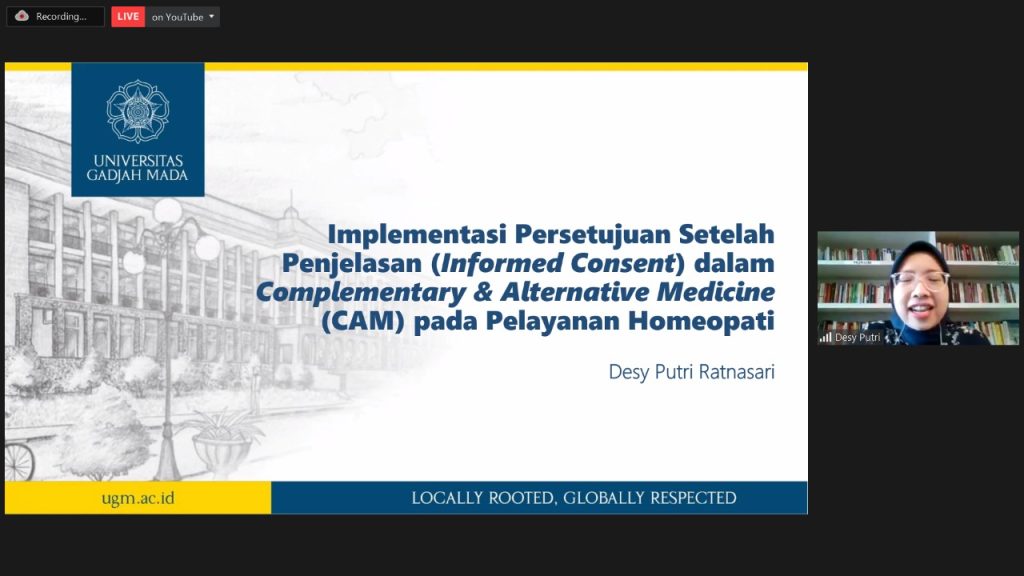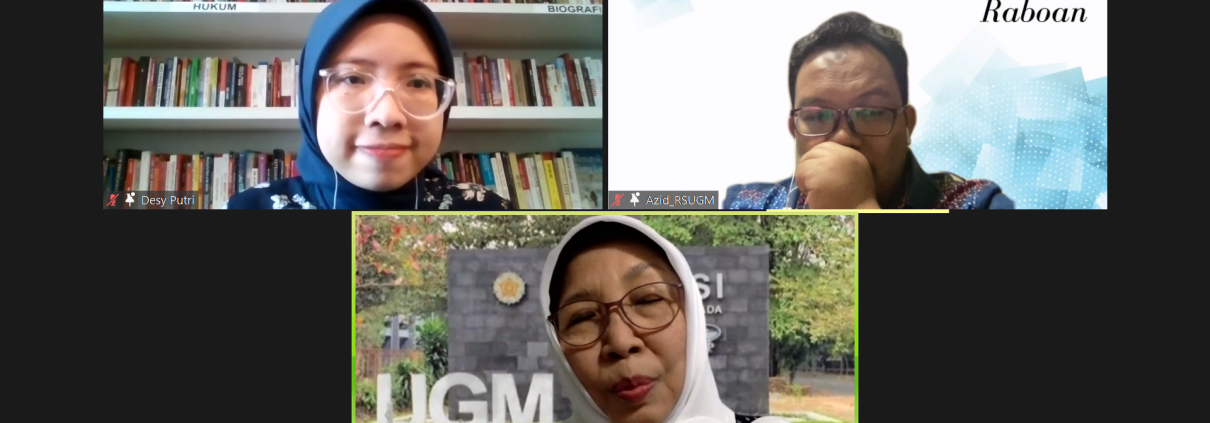Informed Consent Implementation on Complementary Alternative Medicine (CAM) Homeophaty (Raboan Discussion Forum)
Wednesday (05/02), Center for Bioethics and Medical Humanities (CBMH FK-KMK UGM) held the weekly routine program Raboan Discussion Forum for the first week of January 2022. The theme on the occasion was Implementation of Informed Consent on Complementary & Alternative Medicine (CAM) and Homeopathic Services. The virtual discussion forum presented by speakers Desy Putri Ratnasari, M.Sc., Bioethics Masters Study Program Alumni and UGM CBMH Research Assistant. Meanwhile, the moderator is dr. Nur Aziz Mahadinata.

Based on Desy’s finding in Indonesia there is a fairly high demand for Complementary Alternative Medicine (CAM). One type of CAM that is quite large in demand is Homeopathic medicine. Although this treatment has been widely found in the community, research on the ethical aspects of this practice has not been done much. This prompted Desy to research aspects of patient autonomy in the form of Informed Consent.
Homeopathy is a treatment that relies on herbal medicines that work together with the immune system to fight disease. In Indonesia, the most popular practice of Homeopathic medicine is the Homeopathy of the Ahmadiyya Community. The Ahmadiyya Homeopathy practitioners are under the auspices of the Departemen Homeopati Nasional (DHN). Homeopathic Medicine is in demanded by both Ahmadiyya congregants and non-congregants. Because, this treatment is considered to have low side effects.
Desy’s research results show that the implementation of Informed Consent is also used in Homeopathy CAM treatment. The practice is in accordance with Peraturan Kementrian Kesehatan No. 290/MENKES/PER/III/2008 concerning informed consent, which includes the diagnosis of the disease, the purpose of the action, other alternative actions, risks or complications that may occur, the prognosis for the action and the estimated cost. From the results of interviews with Homeopathic Practitioners, Patients, and DHN administrators, it was found that the use of informed consent was carried out to anticipate undesirable things in the future. Informed consent in the practice of Homeopathy is done in two forms, oral and written (form). The written Informed consent is generally used for homeopathic patients outside the Ahmadiyya Community.
Watch the full video below




Leave a Reply
Want to join the discussion?Feel free to contribute!